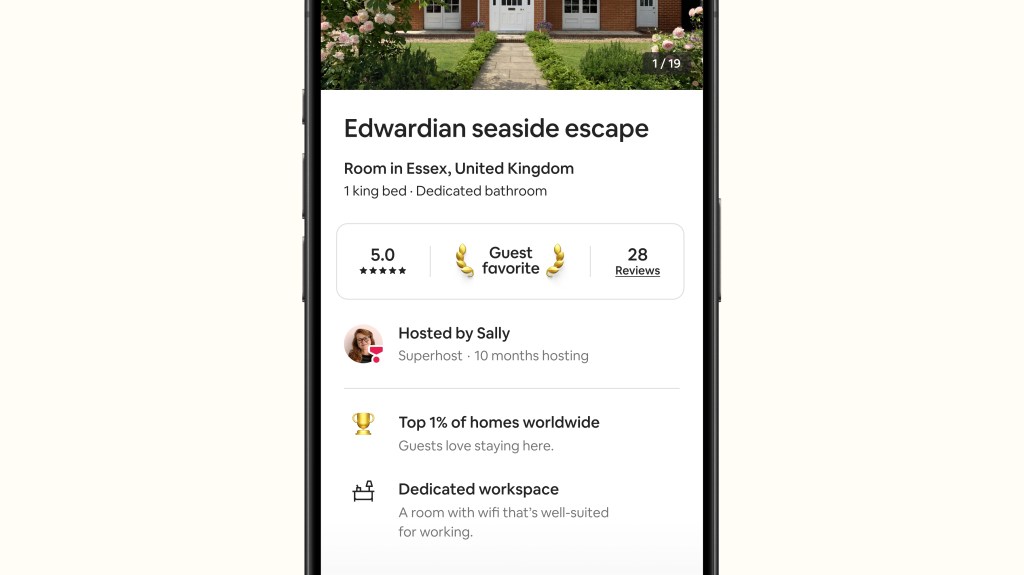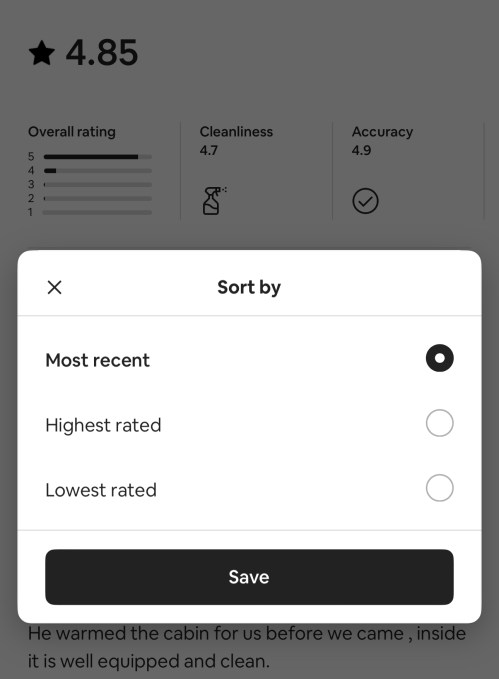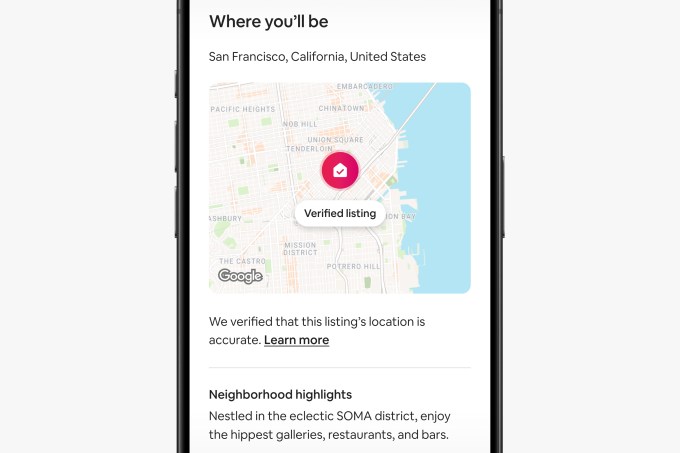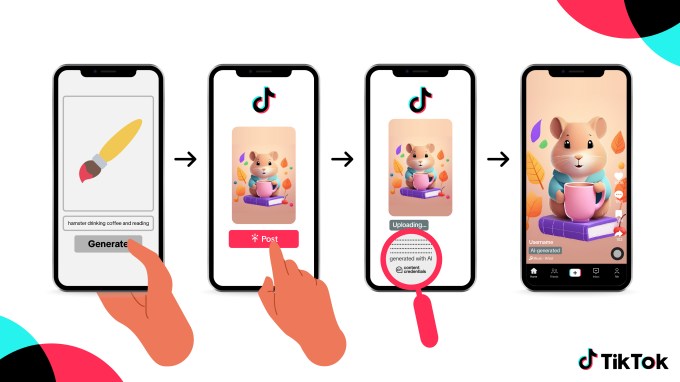
Airbnb already has labels like “Guest favorites” and “Superhost” to indicate the quality of a property or the host. Now the company is adding a new label for the top 25% and top 1% properties on the listing page.
Usually, Airbnb releases updates twice a year with so-called winter and summer releases. But this time, the travel company has chosen to release a spring update as well. The new top property badge, which relies on metrics like subcategory ratings, review sentiment, host cancellations and quality-related customer service issues, is part of this rollout.
What’s more, the company is also putting a badge on the bottom 10% of properties to indicate low quality. Airbnb said that since it launched an updated hosting quality measurement system in April, it has booted out 100,000 properties off the platform.
Last November, the company rolled out a way to sort reviews by most recent or highest rated. With its latest update, it has also added the ability to sort reviews by lowest rated.

Airbnb already has a label for “Superhosts,” which depends on metrics like ratings across their properties and cancelation rate; and a label for “Guest Favorites” properties, which includes two million top properties out of 7.7 million on the platform. Technically, a property can have all three labels, but with overlapping underlying metrics, it is hard to tell if one label has more importance over others.
Today, the travel booking company provided an update to another badge it introduced last year: verified properties. In September 2023, Airbnb said that the company would verify all properties in its top five markets — the U.S., Canada, Australia, the U.K. and France — to weed out fake listings. The company has a review process that involves anti-fraud technology and human review. Airbnb said today that nearly 1.5 million properties would be verified by the end of this month in these five markets with a verification badge shown next to the listings.

Airbnb said that it plans to add photo and video verification tools for hosts to verify their listings. Plus, the company aims to roll out verification in 30 more countries by Q3 of this year.
Last November, Airbnb CEO Brian Chesky told TechCrunch that the company would release one or two updates to improve its core products before working on AI-powered features such as review summaries. Last month, during the company’s quarterly earnings call, Chesky talked about using AI to build the “ultimate concierge.” So you can also expect more AI-related features in the future updates.

